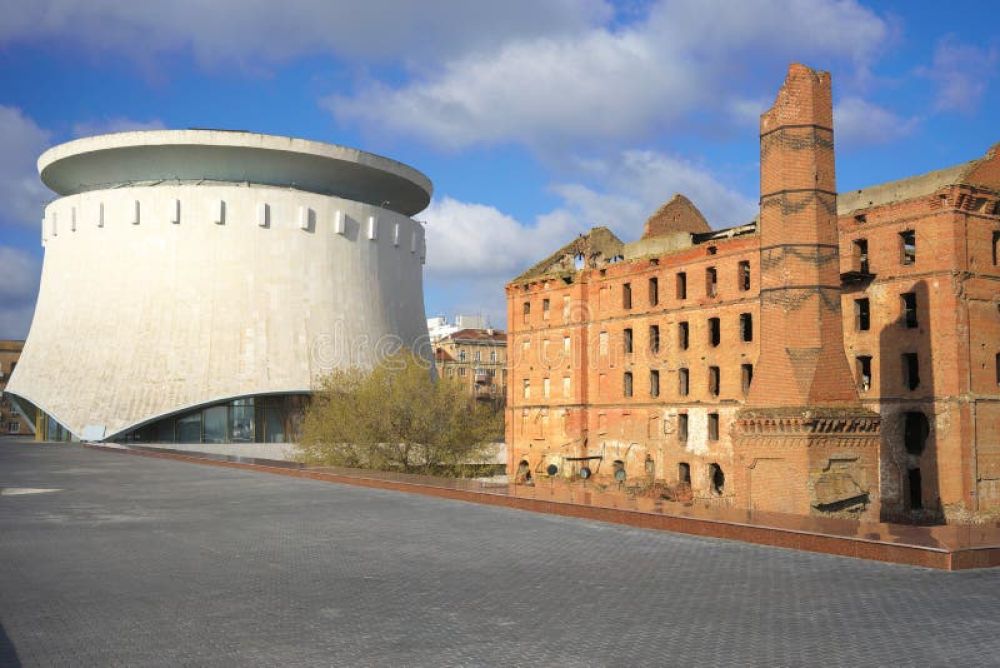

Volgograd, formerly known as Stalingrad, is a city that carries a profound historical significance, especially when it comes to World War II. The city was the site of one of the war's most pivotal and bloodiest battles — the Battle of Stalingrad. Over the years, this historical context has shaped Volgograd into a significant destination for those interested in military history and Soviet-era monuments.
The tourism history of Volgograd is intrinsically linked to its wartime past. After the end of World War II, the Soviet Union began to commemorate the city's heroic defense and the immense sacrifices made by the Soviet people. The government erected an extensive memorial complex, which became a site of pilgrimage for citizens from across the Soviet Union and a focal point for historical tourism.
In the post-war years, Volgograd was rebuilt from the ruins, with monumental architecture epitomizing the resilience and fortitude of the Russian spirit. The city began to attract more tourists, including foreign visitors interested in the site's historical importance. The focal point of this historic tourism is the Volgograd State Historical and Memorial Preserve, which includes a collection of museums, monuments, and preserved battle sites.
At the heart of the preserve stands the soaring Mamayev Kurgan memorial complex, crowned by the imposing statue of "The Motherland Calls" which is one of the tallest statues in the world and a symbol of Russian valor. This statue, along with other monuments like the Hall of Military Glory and the Eternal Flame, attracts large numbers of visitors every year, especially on significant dates such as Victory Day on May 9th.
The Volgograd Panorama Museum, also part of the preserve, offers in-depth exhibitions on the Battle of Stalingrad, complete with a panoramic painting of the conflict, military artifacts, and personal items belonging to soldiers.
In recent years, Volgograd has seen a diversification in its tourist attractions. While historical tours remain popular, the city has also invested in cultural and recreational tourism. Efforts have been made to improve infrastructure, making it easier for tourists to visit and experience the city. The tourism sector has also embraced technology with the introduction of virtual tours, especially during the COVID-19 pandemic.
There is a growing interest in river cruise tourism as well, which showcases not only the battle sites but also the natural beauty of the Volga River upon which Volgograd sits. Such cruises often include stops at key monuments and museums, providing a comprehensive historical experience from a unique vantage point.
Additionally, sports tourism has brought new visitors to the city, especially following the 2018 FIFA World Cup when Volgograd was one of the host cities. This event significantly boosted the city's international profile and proved that Volgograd had attractions beyond its historical significance.
Volgograd State Historical and Memorial Preserve remains a solemn reminder of the past, but it is also a testament to the city's resilience and its growing appeal as a diverse tourism destination.